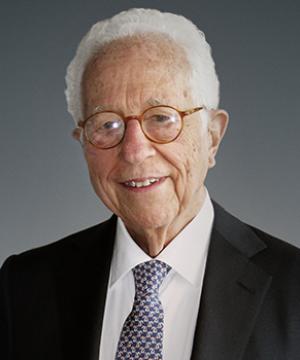Millstein Center Releases Report on Corporate Boards’ Powers
Boards of directors have the legal power – and obligation – to push back firmly against short-termism from the markets when the board believes its long-term strategy is the right one for the corporation.
That’s the conclusion of an analysis published by the Millstein Center for Corporate Governance at Columbia Law School that details fiduciary duties of directors and judicial review of corporate decision-making.
But the “more dangerous” risk, in the authors’ view, “is the risk of focusing only on short-term results and foregoing innovation and growth to the point where a corporation cannot be sustainable in the future.”
The report comes amid a wave of activism by hedge funds that take a position in a company and then to try to influence its strategy or direction – either through persuasion or, if that fails, by seeking board seats and management changes. This year, Procter & Gamble, General Motors, Whole Foods, and ADP all have faced activist campaigns.
Directors owe a duty to all shareholders, including hedge funds, mutual funds, retail investors and everyone in between, explain Millstein and Veasey, who note that a strategy championed by an activist may be the right strategy for the company, in which case the board has a duty to listen.
“The point is that the only people in a position to make those distinctions are the directors,” they write.
Holding up in court
Courts will not second-guess decisions by disinterested and independent directors who act on an informed basis, in good faith, and in the genuine belief that the action is in the best interests of the company, notes Millstein and Veasey, who emphasize that the law empowers directors to do what they decide is right for the corporation.
It also allows directors to delegate day-to-day managerial duties to corporate officers, subject to their oversight responsibilities, giving them more time to focus on corporate strategy.
Though they have the law on their side, “directors should expect uncertainty to be a fact of corporate life for the foreseeable future,” write Ellen Odoner, Stephen Radin, Lyuba Goltser, and Andrew Blumberg of Weil Gotshal & Manges, who authored the report, which discusses the fiduciary standards of conduct of directors and illustrates in a series of flowcharts how courts review whether directors have met these standards.
The authors offer guidelines for board decision-making that can withstand court scrutiny. They include:
- From the start, directors should put in place processes that allow them to surface “any actual or potential self-interest or lack of independence with respect to the matter in question.”
- Directors should “identify and obtain the information that will be relevant to the decision.” That may include a need to consult with experts.
- Board meeting minutes should “carefully document independence determinations, the process by which the decision was reached, the time spent, the information considered, the risks and benefits weighed, and the ultimate basis for the decision.”
- Directors should ensure that materials sent to shareholders describe in detail deliberations by the board, particularly for transactions that shareholders may be asked to vote on.
While noting that claims alleging failures of board oversight rarely result in liability, the authors also offer detailed recommendations to safeguard their companies from the “corporate traumas” so prevalent in the news.
Among their recommendations, directors should probe how corporate strategy incorporates risk. Meeting agendas should leave ample time to oversee how well the company’s framework for managing risks keeps pace with changes “in the company’s operations and in the political, business, and regulatory environment,” the authors suggest.
According to the authors, directors also should keep a watchful eye on culture, study and learn from problems at other companies, prioritize ethics and compliance companywide, and consider the need for competence in areas that tie to the company’s key business risks when recruiting candidates for the board.
Above all, they advise, directors should not hesitate to ask the tough questions and be vigilant about potential harm to the company’s reputation.
Related reading
Fiduciary Duties of Corporate Directors in Uncertain Times
Board Excellence and Fiduciary Duties of Corporate Directors
How Corporate America Can Survive These Uncertain Times
Columbia Law Alumni Honored by New York Law Journal
###
Posted on Dec. 7, 2017
